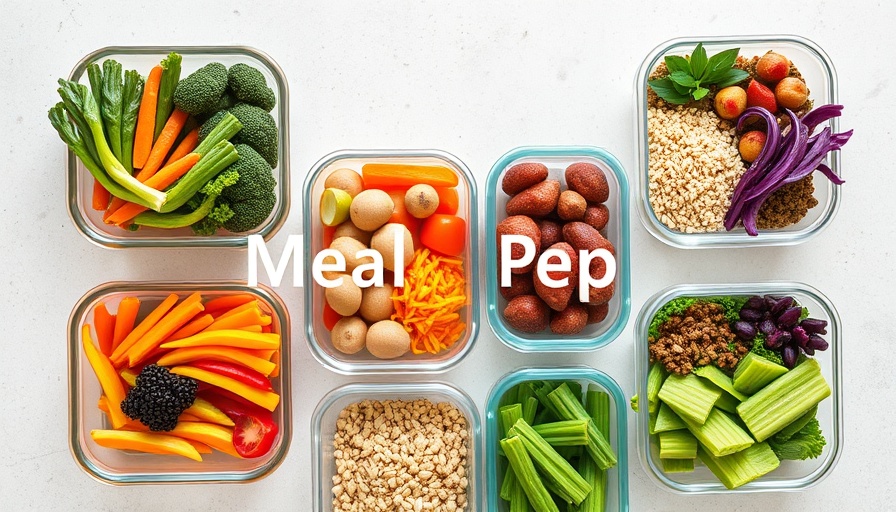
Understanding Meal Planning for Spoonies
Chronic illness can undoubtedly complicate everyday tasks, with meal planning often standing as one of the most daunting. Whether you're managing fatigue or navigating dietary restrictions, planning your meals can feel overwhelming. For 'spoonies' – a term popularly used to describe those living with chronic illnesses – the simple act of deciding what to eat can lead to mental exhaustion. Fortunately, meal planning doesn't have to be a chore. With a system tailored to individual needs and preferences, it can become a more manageable aspect of daily life.
Start with What You Can Eat
Identifying safe and enjoyable foods is paramount for anyone with dietary restrictions, be they allergies, intolerances, or ethical preferences. For those adhering to vegan diets, like myself, it helps to establish a master list that prioritizes foods you love while avoiding what doesn't serve you. This list acts as a helpful reference, streamlining the decision-making process on days when even the thought of food feels exhausting. It doesn’t just provide structure; it empowers practitioners to stick to their dietary needs without the pressure of constant choices.
Keep It Simple
Another vital aspect to consider is the complexity of meals. When energy is low, it's crucial to prioritize simplicity over elaborate cooking. A few versatile, quick options can significantly ease meal prep while ensuring nutritional needs are met. Some of my go-to meals include:
- Overnight oats – perfect for a quick, filling breakfast, with playful flavors like cookie dough or lemony blueberry.
- Air-fried tofu – a nutritious protein source that’s incredibly adaptable to various seasonings.
- Rice and beans – effortless yet hearty, these form the basis of many satisfying meals.
- Freezer-friendly smoothies – combining frozen fruits and vegan protein can be a delightful and energizing snack.
- Gluten-free pasta – fast to cook and incredibly filling.
Having a rotation of these quick recipes means that if you find yourself lacking the energy, delicious food is still within reach.
Organizing Your Meal Plan
Technology can also be your ally in streamlining meal planning. Apps like Notion or even digital calendars enable you to organize meals by week or month, allowing you to visualize your choices. Some users prefer physical lists or handwritten notes; that’s perfectly fine. The goal is to find a method that reduces hassle and anxiety around meal times. Keeping it versatile and adaptive to your energy levels will ensure dietary habits remain sustainable.
Embracing Flexibility
It’s important to realize that flexibility is key in this journey. Some days, creating a smoothie might seem like too much. Other days, you might feel energized enough to whip up a hearty meal. Embrace this ebb and flow; it's entirely normal. Having a flexible meal plan means eliminating the guilt if things don't go as planned. Remember, nourishing your body is the main goal, regardless of the form it takes!
Conclusion: Take Charge of Your Meal Planning Journey
For spoonies, adapting meal planning strategies to match energy levels and dietary needs can define the success of self-care. By starting with what you can eat, simplifying meals, utilizing tools for organization, and embracing flexibility, meal planning can shift from a burdensome task to a source of relief. As you simplify the processes and identify foods that nourish both the body and soul, you open avenues for creativity and comfort in your diet. So, go ahead and take the time to map out a plan that works for you – your health and well-being deserve it!
 Add Row
Add Row  Add
Add 




Write A Comment